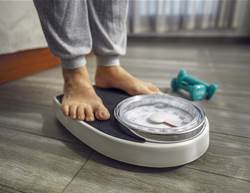No matter how regimented you are with your diet or hard you work to meal prep, sometimes your day can take an unexpected turn and all of a sudden you have five meetings on your calendar, or have to rush home to pick up your sick kid from school. While it's totally okay to eat the donut or enjoy a Friday night pizza every now and then, it's never a bad idea to equip yourself with healthy eating strategies to ensure that, for the most part, you're staying energised and that your metabolism continues humming throughout the day. Some basic rules to follow are:
Have a meal or small snack every three to four hours. This fuels your metabolism and helps prevent binges and blood sugar crashes.
Combine protein and fibre at every meal. When eaten together, these foods take longer to digest than simpler carbohydrates, so you stay fuller, longer.
Get up, move around, and drink water often. Staying active will help boost your metabolism and ensure you're burning kilojoules to maintain weight loss. But the recommended daily intake varies from person to person (from about 1,550cal to 2,100), so if you're active you can go toward the higher end of the range.
Finally, remember that even a healthy day of eating isn't healthy if you eat the exact same things over and over again. Use the principles outlined here to mix and match your own delicious, good-for-you meals.


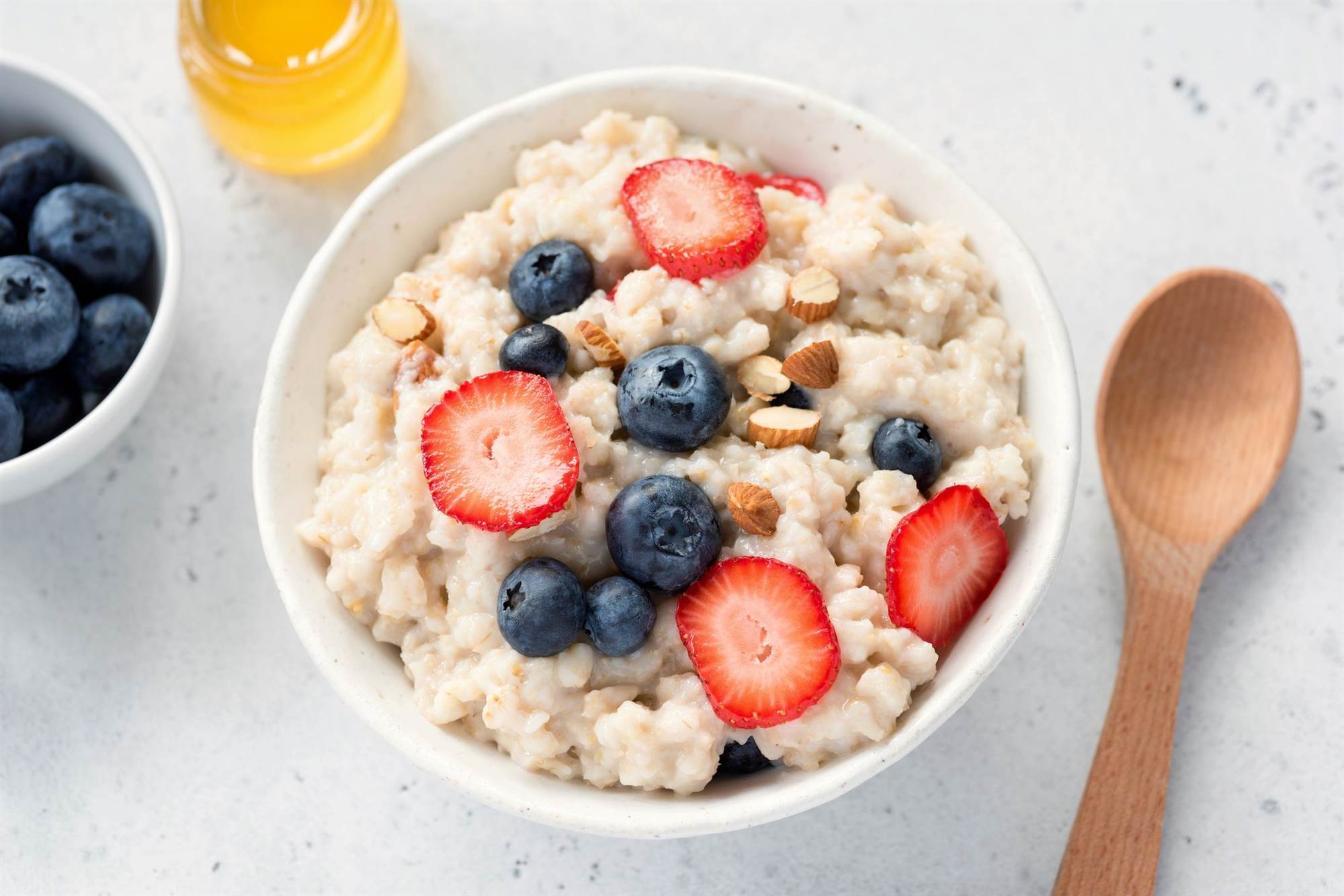
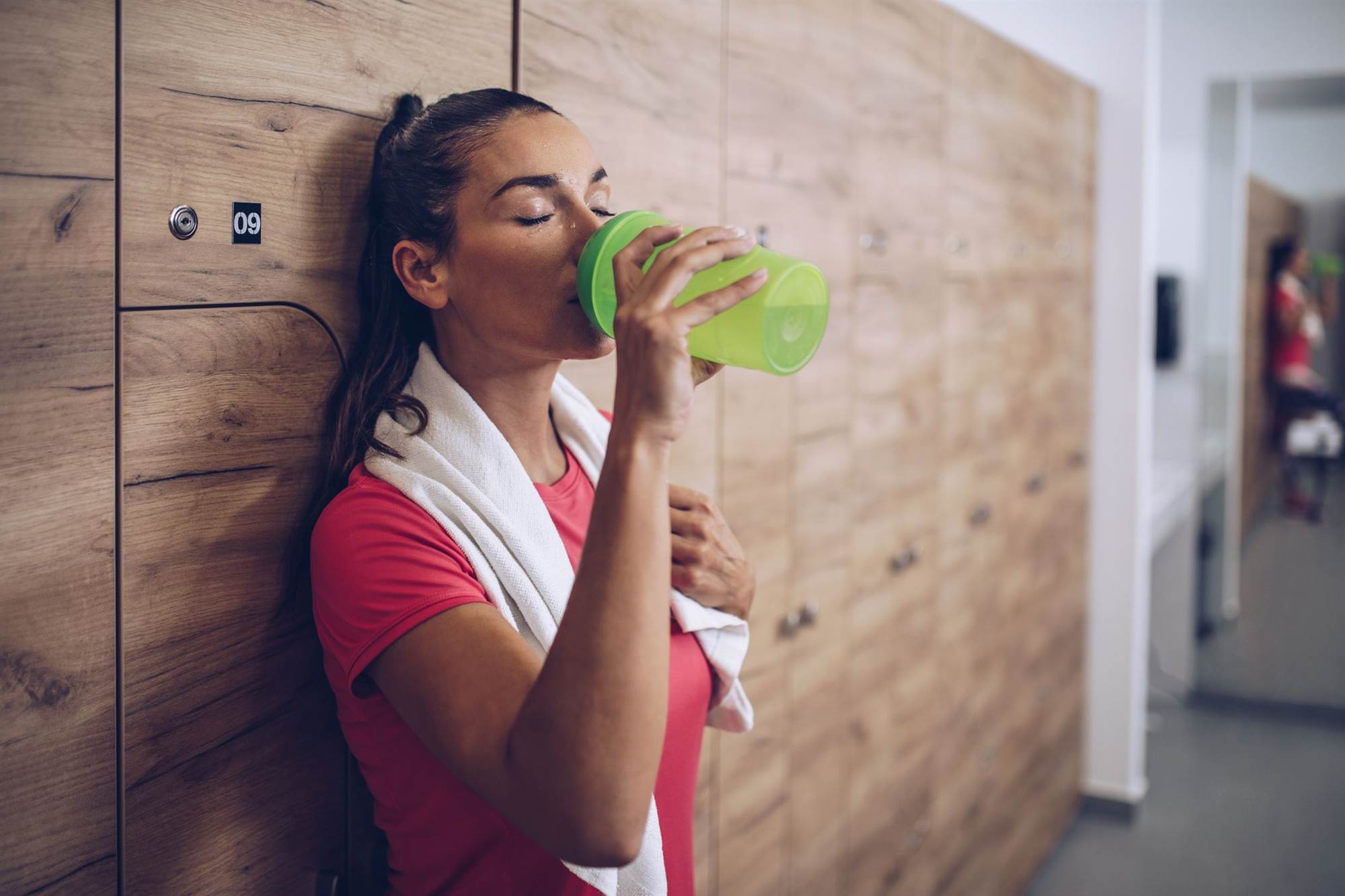

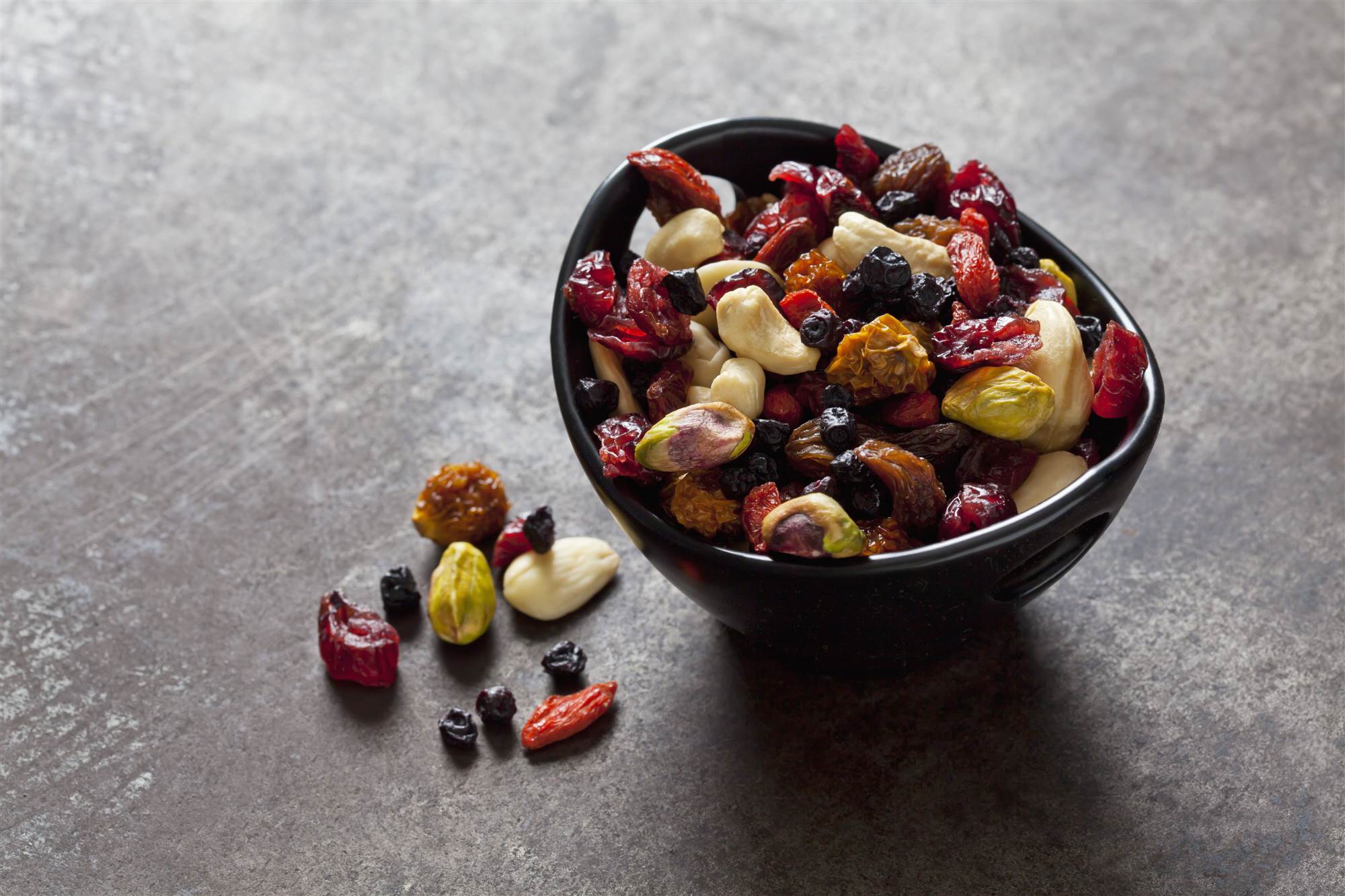

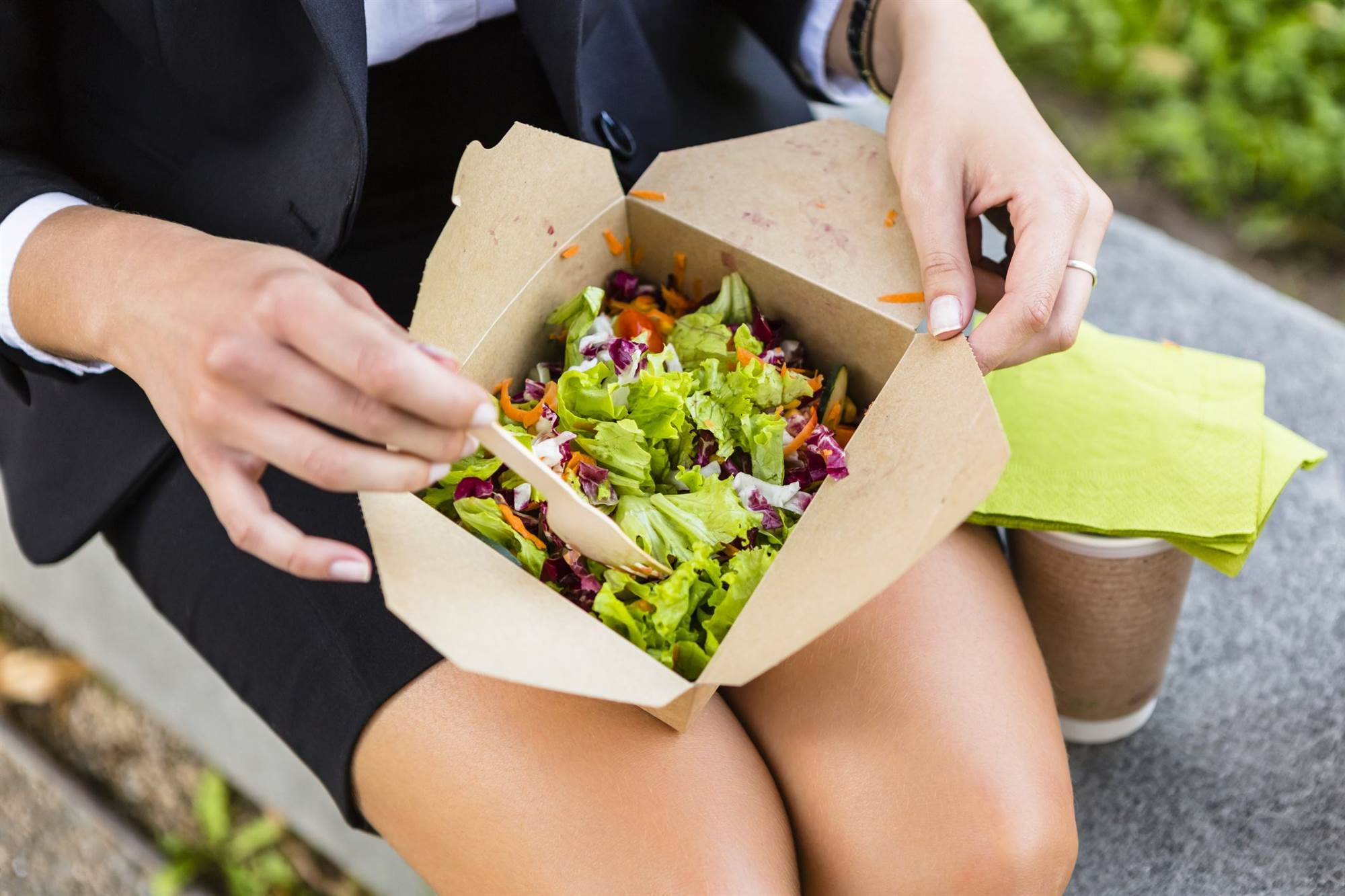

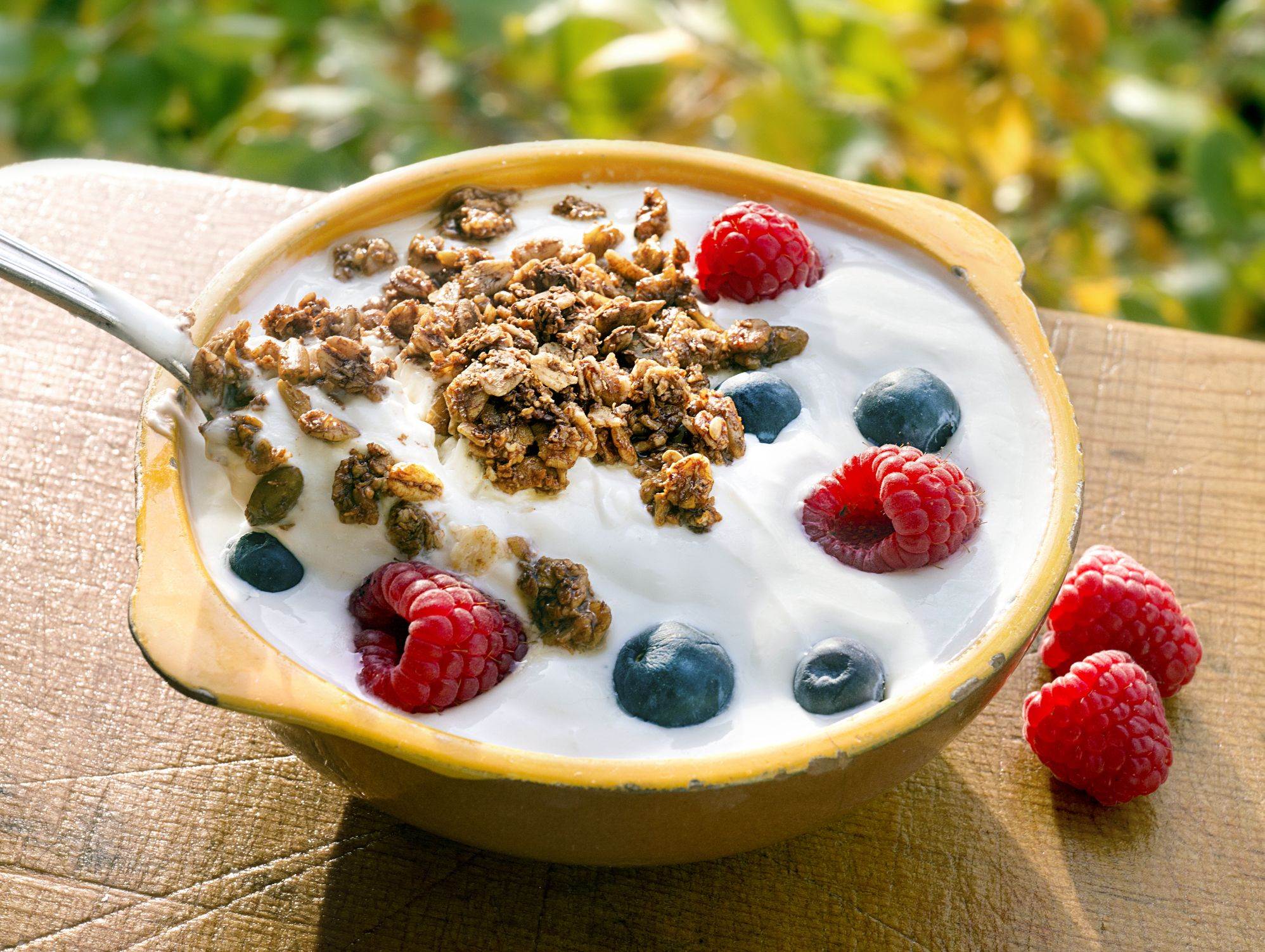
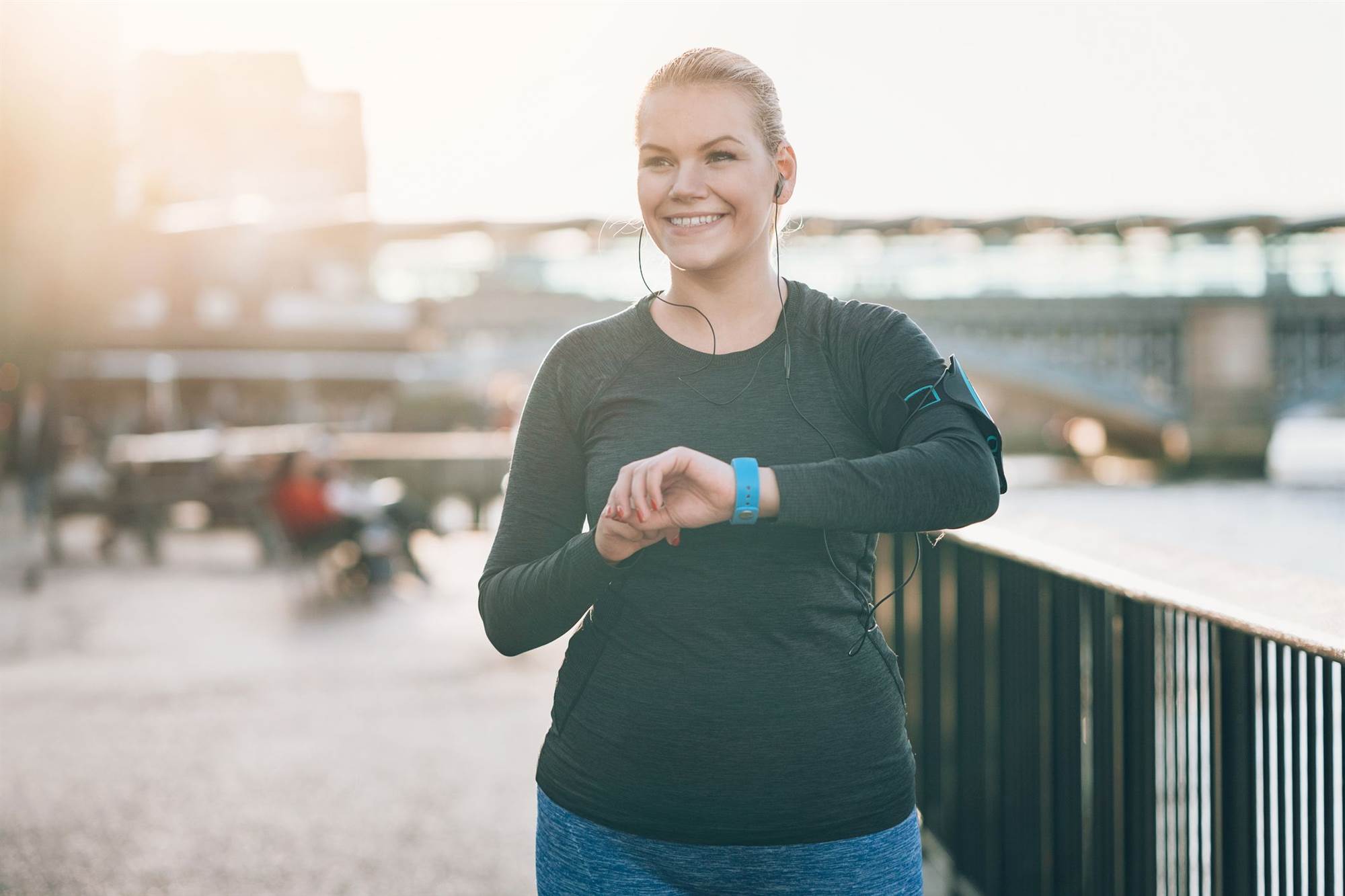
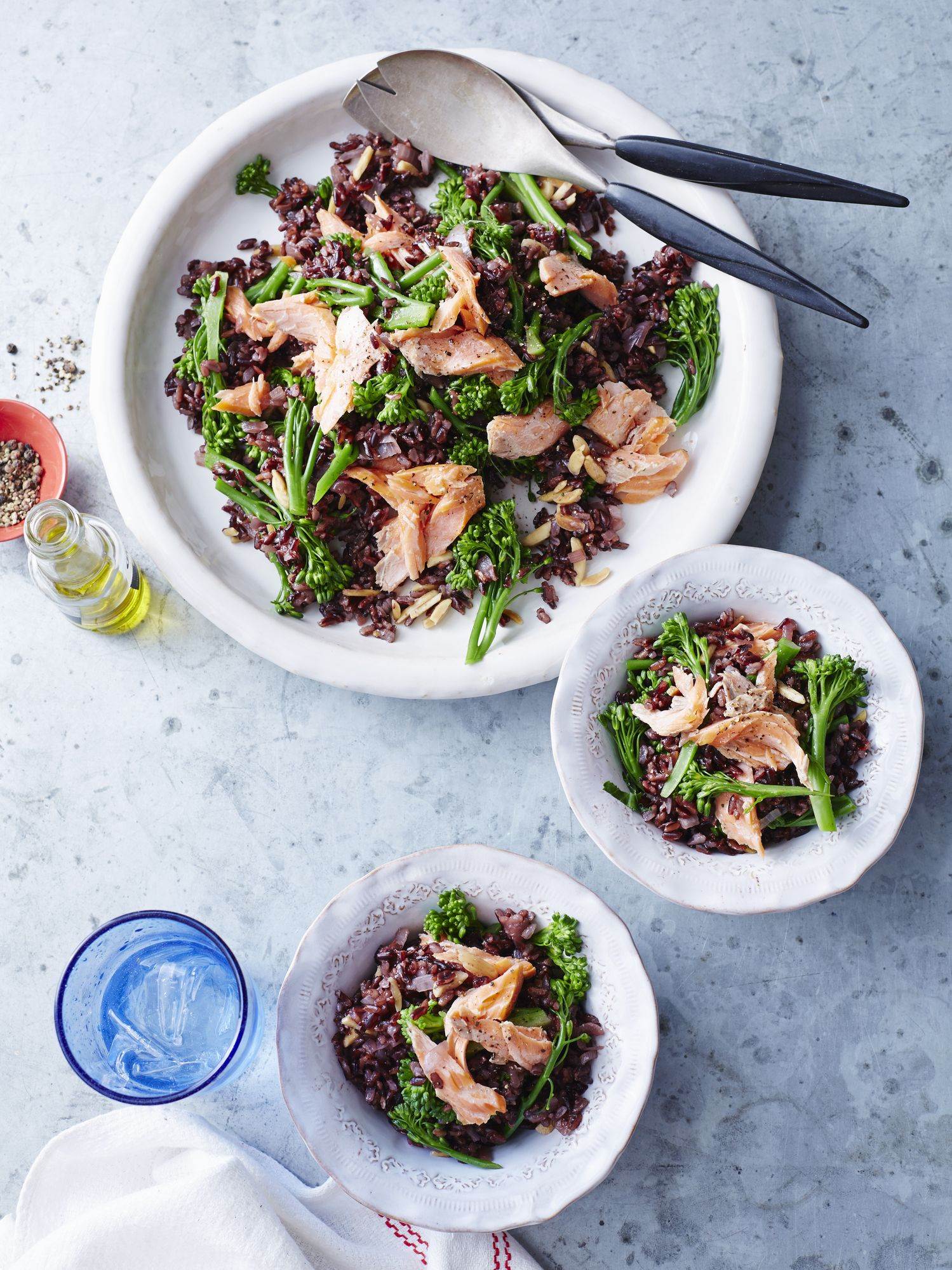
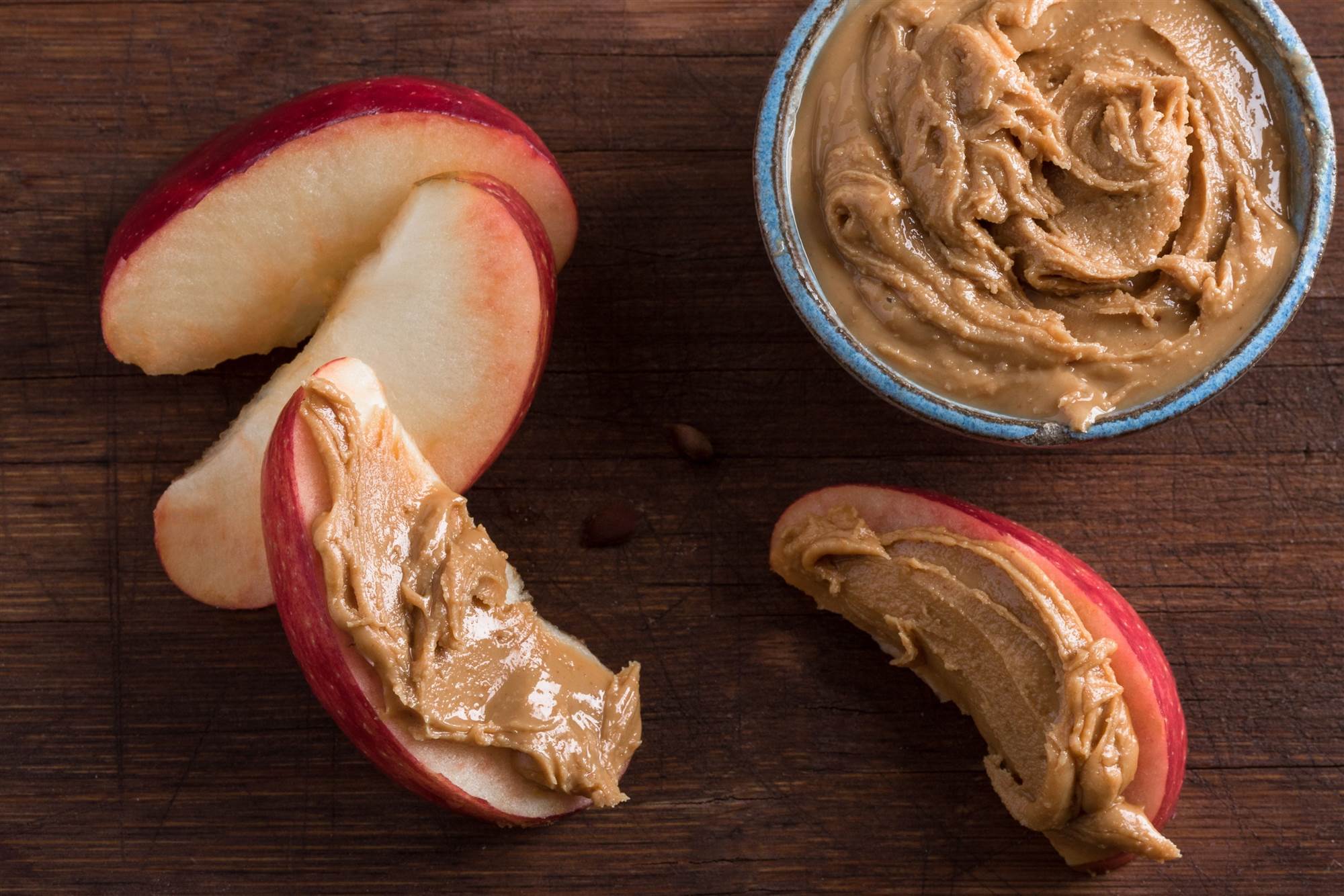

elenaleonova ©Getty Images
1) 6:30 to 7 a.m.: Wake up drink a glass of lemon water.
"Before you put coffee, tea, or food into your body, it's best to first break your fast with a glass of water with lemon," says dietitian Ashley Koff.
When you sleep, Koff says your body isn't just abstaining from food but from water, too. "Because many vitamins are water-soluble, having a glass before you eat will help your body better absorb nutrients from food," she explains. The acidity of the lemon helps rebalance your digestive tract by making it alkaline, allowing "good" bacteria in your intestines to thrive and facilitate optimal nutrient absorption.
elenaleonova ©Getty Images
2) 7 a.m.: Go for a short walk.
This point in the morning is your ideal fat-burning window, says Koff. A light bout of cardio soon after you wake up and before you eat - a 20-minute walk with the dog, star jumps, or running up and down stairs in your home - taps into your body's energy reserves. "I don’t mean a two-hour hike or an intense 45-minute spin class on an empty stomach," she says. The idea is to fit in some easy activity and try to eat within an hour or so of waking up.
elenaleonova ©Getty Images
3) 7:30 a.m.: Eat breakfast.
Porrige is one of the best foods you can enjoy for breakfast. It's high in fibre and has a decent amount of protein to keep your hunger levels in check.
"Your body digests the fibre slowly, so you stay full for a couple of hours," says dietitian Brooke Alpert.
Enjoy one-half cup of oats with fresh fruit, or prep overnight oats for a delicious, pudding-like texture. For protein, add a glass of fat-free milk, yoghurt or a handful of nuts. Topping your oats with some nuts, like almonds or walnuts, adds some healthy fats and a satisfying crunch, too. For fruit, Alpert recommends one-half cup of mixed berries for vitamins, antioxidants and more fibre. Whatever you do, don’t just sip coffee all morning and wait to eat until lunch, says Alpert. "You'll be so hungry, you won't make healthy choices."
kJ estimate: Aim to get 1,255-1,675kJ (300-400cal)
elenaleonova ©Getty Images
4) 9 a.m.: Drink another glass of water.
You know you're supposed to drink multiple glasses of water a day. But it's better to sip a little water all day long instead of chugging a giant glass when you suddenly feel parched. "If your tongue feels dry to the touch or your pee is bright yellow, you're dehydrated," says Alpert.
elenaleonova ©Getty Images
5) 10 a.m.: Stretch and walk.
Get up, stretch, and stroll every hour to hour-and-a-half, says nutritionist Heidi Skolnik. Walk over to a co-worker's desk instead of shooting off an email or sending a message, or take the stairs when you head to another floor in your office.
elenaleonova ©Getty Images
6) 10:30 to 11 a.m.: Have a small snack.
It's best to eat every three to four hours to keep your energy up and avoid big mealtime binges. For fibre and protein, try an apple with a spoonful of peanut butter or a handful of nuts (especially if you didn't have them at breakfast). "Everyone should have an apple in her desk drawer," says Alpert. "They're the perfect take-along snack - they don't bruise in your purse and they're easy to eat anywhere." Greek yoghurt with some berries is also a great option.
Just remember to sit whenever you eat, says Koff. Take small bites and try to drag out your snack for as long as possible, ideally 10 to 15 minutes. Research shows that the more chewing you do, the more nutrients your body absorbs.
kJ estimate: 630-1,255kJ (150 to 300cal)
elenaleonova ©Getty Images
7) 11:30 a.m. to noon: Take any vitamins and stretch.
Finish your glass of water, refill it, and take your multivitamin. "I recommend clients take their multi-vitamin shortly before lunch because the B vitamins and certain minerals help your body utilise carbs so you have more post-meal energy," says Koff. Then, get up and stretch at your desk. Staying active will keep your energy up, so you're not tempted to snack out of boredom or fatigue. Plus, some movement before lunch jump-starts your digestive system, Koff says.
elenaleonova ©Getty Images
8) 1 to 1:30 p.m.: Eat lunch.
Making time to eat your lunch away from your computer will help you savour every bite of your meal. Here's how to build a better salad that'll fill you up: Start with dark, leafy greens and pile them high with a mix of colourful veggies, protein, and good-for-you fats. Add tomatoes, carrots, capsicums, and mushrooms for a healthy combo of vitamins, minerals, and antioxidants. For satisfying healthy fats and lean protein, consider topping your salad with 1/4 cup of avocado and 1/2 cup of tuna fish, grilled chicken, turkey, beans, or lentils.
"Get adventurous with different veggies every day," Alpert says. "The more colour and variety, the better." Just be sure to avoid drowning your salad drowning in dressing. You also want to choose a light version or an olive oil-based one. "You want some fat in your salad because it helps your body digest fat-soluble vitamins like A, D, E, and K," says Skolnick. As always, wash your meal down with water.
If you want, have a slice of wholegrain bread on the side. "People love bread," says Alpert. "If you'll feel deprived without it, I'd rather you have the 400 or so kilojoules here than risk going overboard later."
kJ estimate: 1,255-2,100kj (400-500cal)
elenaleonova ©Getty Images
9) 2 p.m.: Drink more water and go for a walk.
Step away from your computer for a quick break and go for a walk. Squeezing in some steps during this time of the day will help you make a sensible choice when those 4 o'clock cravings strike. "Get outside if you can, especially if you didn't go out for lunch," says Koff. "The fresh air and sunshine will boost your spirits and stop you from overeating because of a bad mood."
elenaleonova ©Getty Images
10) 3:30 to 4 p.m.: Have an afternoon snack.
Welcome to the witching hour: Almost everyone needs to snack between lunch and dinner, says Alpert. For a fibre-protein mix, try a 125g yoghurt and a handful of high-fibre cereal. Or, have a banana with a tablespoon of natural peanut or almond butter.
Koff says having 30g of dark chocolate (70% cacao) is also a good choice. It’s packed with polyphenols, a type of antioxidant shown to help lower blood pressure, keep your brain sharp, and more.
But don't force it if you're not hungry for a snack, especially if you had a big lunch. If you plan to hit the gym after work, you may want to eat more or save some of your snack until after your workout.
kJ estimate: 630-1,050kJ (150-250cal)
elenaleonova ©Getty Images
11) 6 to 7 p.m.: Do a "pre-dinner" activity.
If you didn't walk in the morning, now is a good time to squeeze in some exercise. "When you're home waiting before dinner is when the munchies happen," says Alpert. She recommends some kind of regular pre-dinner activity to all of her clients, whether it's just circling your block a couple of times or going to the gym.
"When you have something scheduled, you're less likely to float in and out of the kitchen." It’s also a smart to try to include walking in your commute. If you drive to work, pick a far-away parking spot, says Alpert. Or, take a train or bus and hop off a stop earlier than your usual and walk the rest of the way.
elenaleonova ©Getty Images
12) 7:00 p.m.: Make dinner.
Our experts recommend starting your meal off with soup. Have a cup of a low-fat, broth-based kind, like minestrone or miso. Research has shown that people who eat soup as the first course end up eating less overall at a meal. For the main dish, "I'd like to see 90-120g of grilled wild salmon because it has lean protein and provides healthy omega-3 fats," says Alpert. Add cooked vegetables like broccoli or spinach and 1/2 cup of brown rice.
For a non-fish option, try chicken meatballs (roll in some whole oats for extra fibre and spices for antioxidants) over a bed of zoodles, which has the texture of pasta but counts as a veggie serving. Use 1/2 cup of tomato sauce, and sprinkle a handful of pine nuts on top for crunchy texture. Have a glass of water with dinner. A 125mL glass of wine with dinner is fine from time to time, too.
Calorie estimate: 1,675-2,100kJ (400 to 500cal)
elenaleonova ©Getty Images
13) 8:00 p.m.: Enjoy dessert.
Wait an hour or so after dinner for enjoying a nighttime snack or dessert. You don't have to strictly follow the fiber-protein rule, but it should be more than just empty calories. A few options: A tablespoon of dark chocolate drizzled over 1/2 cup of berries, apple slices with honey or nut butter, or orange juice ice pops.
Calorie estimate: 100 to 150 calories
elenaleonova ©Getty Images
14) 10:00 to 10:00 p.m.: Go to bed.
Aim to get seven to eight hours of sleep a night. Anything less than that increases your risk for a host of health problems, including weight gain, diabetes, high blood pressure, and more.
Not to mention, being sleep deprived will make you feel more tired, frazzled, and likely to overeat the next day. Drink another glass of water shortly before bed, and give yourself plenty of time to wind down with a calming routine, such as taking a relaxing bath or reading in bed. If you have trouble sleeping, try one of these simple sleep strategies.







